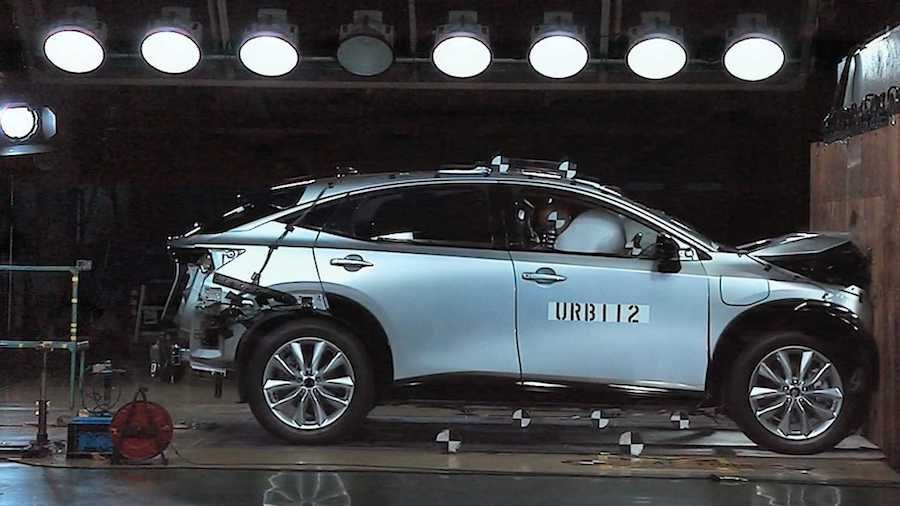Nissan Ariya Crash Tests Show the Attention a High Voltage Battery Pack Deserves

It is a way to ensure customers the car is safe. In the Nissan Ariya’s case, it presented something new: footage of how the battery pack behaved.
We can say that Nissan was pretty candid about that, undoubtedly because it feels that the Ariya’s battery pack is really well guarded should a wreck happen. The Japanese carmaker admitted that high voltage elements are a safety concern, something most people trying to sell a new EV either downplay or omit.
The video part that shows the battery pack was shot with a transparent surface underneath the car when it went through the front crash test. It is possible to see the components from the front end deforming while the battery pack apparently remains intact.
Gen Watanabe stated that Nissan made sure that the battery pack was “properly retained in the vehicle” following the crash tests and that the electrolytes had not leaked. If the translation of what this engineer of the passive safety evaluation group said is correct, that means that Nissan verified the integrity of the cells. Most current lithium-ion cells use flammable electrolytes.
Watanabe talks about all the other tests the Ariya went through, and they are pretty standard: front, side, and rear crashes, apart from the evaluation of how pedestrians would fare against the electric SUV. According to the engineer, Nissan works with the “Safety Shield” concept, which is equivalent to saying that the car structure protects the passengers. All modern cars follow the same principle of absorbing as much energy as possible so that occupants’ bodies do not have to do that.
Although there’s nothing new under the sun or involving crash tests, it is always fascinating to see how any vehicle behaves in such situations. They are always unpredictable, but there are more common scenarios in which performing well represents allowing passengers to live another day – or not.
Related News


